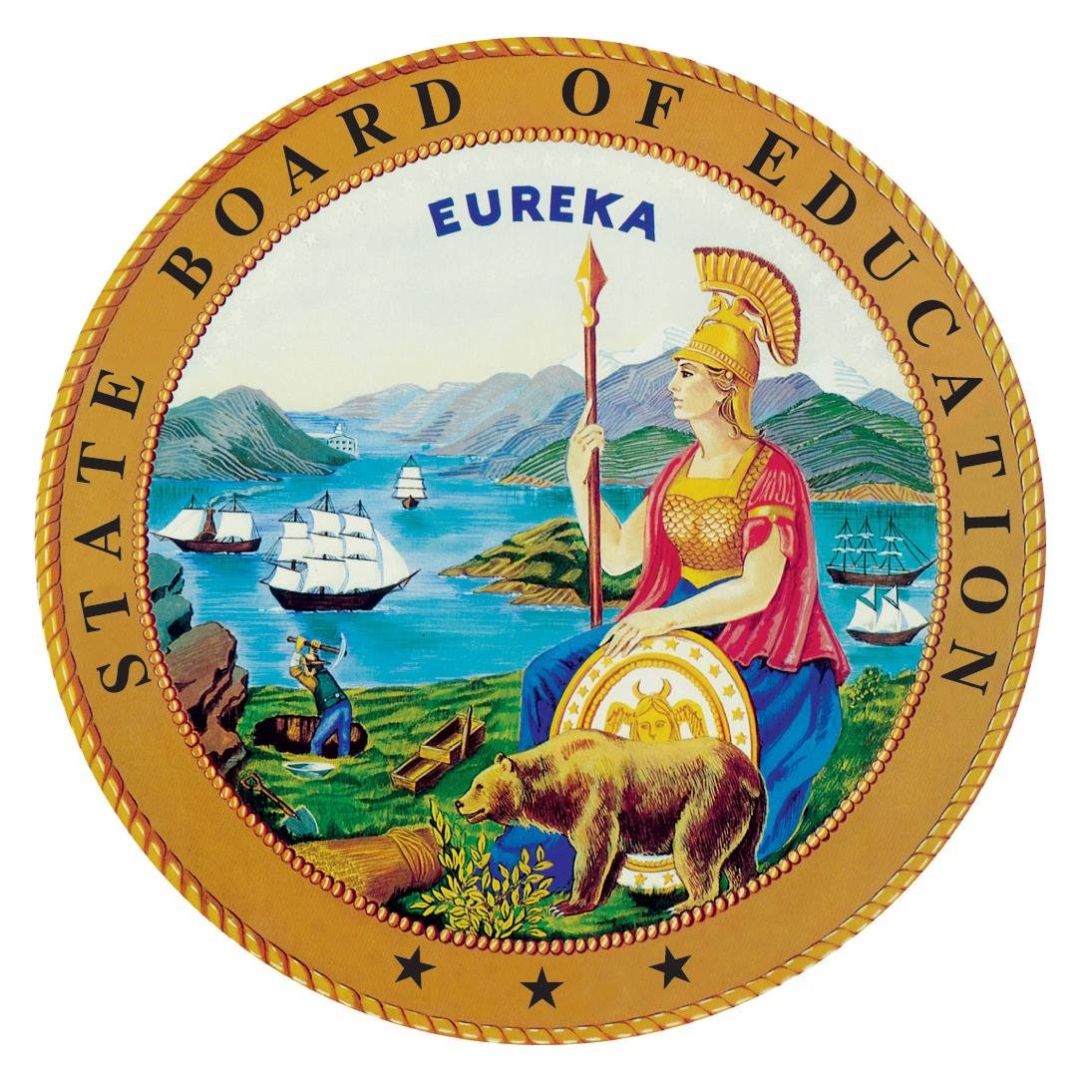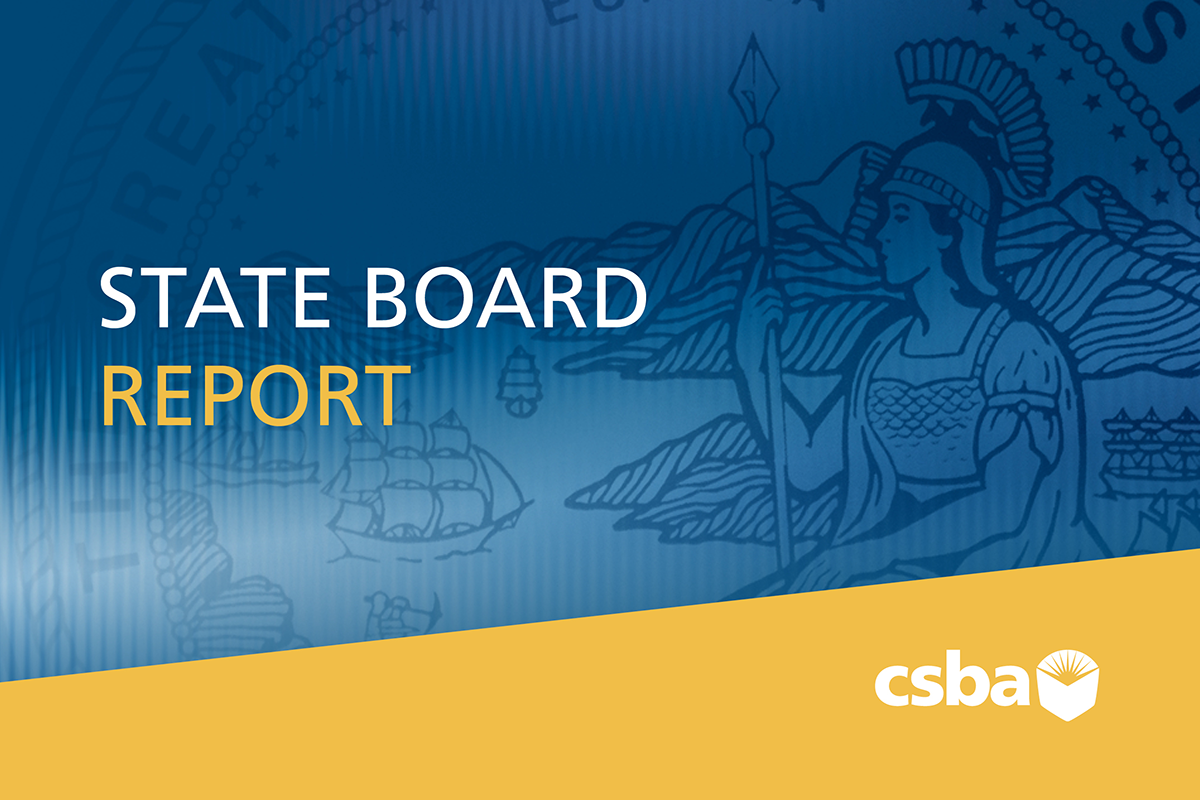The State Board of Education took up a number of critical items at its Nov. 3–4 meeting related to school accountability, the K-12 Mathematics Framework timeline, the California Community Schools Partnership Program and amendments to the Every Student Succeeds Act state plan, among other actions.
SBE President Linda Darling-Hammond emphasized the need for continued dedication at the local level to the COVID-19 mitigation efforts that have successfully kept campuses open and students safe thus far.
“As the weather is turning colder and more of our activities go inside, it is critically important that we continue our vigilance to end this pandemic,” said Darling-Hammond, calling the Nov. 2 Centers for Disease Control and Prevention recommendation that children ages 5-11 receive the Pfizer-BioNTech COVID-19 vaccine “good news.”
“Case rates have begun to tick up again nationally and in California almost entirely among the unvaccinated population, and we cannot afford to take our foot off the gas,” she continued. “If we can stay focused on mitigation measures in schools and vaccinations for all eligible Californians, we will reach the light at the end of this tunnel.”
LCAP template revisions adopted
Among the board’s key actions was the adoption of the revised Local Control and Accountability Plan template and the template for the one-time supplement to the annual update to the 2021–22 LCAP.
As required under Assembly Bill 130, local educational agencies must use the 2021–22 supplement to present an update on the 2021–22 LCAP and Budget Overview for Parents at a regularly scheduled board meeting by Feb. 28, 2022.
Revisions adopted by the board include requirements that:
- Specific goals focused on improving outcomes of low-performing student groups and schools when specific conditions are met are included;
- Calculation of the difference between the total budgeted expenditures of planned actions and the total estimated actual expenditures for those actions, as well as other calculations, are included;
- The additional 15 percent concentration grant add-on included in the 2021–22 budget to hire additional school level staff in schools with greater than 55 percent enrollment of students who are foster youth, English learners and low-income youth be used;
- A one-time supplement to the annual update to the 2021–22 LCAP be adopted requiring LEAs to show how educational partners were engaged in planning how to spend additional funds allocated in the budget but not included in the original LCAP; and
- The term “stakeholder” be replaced with the term “educational partner” when referring to the groups that LEAs are required to engage with in developing the LCAP.
Speaking during public comment in support of adopting the changes, CSBA Legislative Advocate Carlos Machado told the board that the revised templates “balance the new statutory requirements with valid concerns about how the already lengthy LCAP is received locally,” and that approving them “will help ensure these documents continue to be useful to our school communities and spur involvement by local educational partners in their development.”
Several members of the board raised concerns at the September meeting regarding changes to the draft LCAP template and instructions — namely, that the document has strayed too far from its original intent and was unnecessarily complex.
In response, California Department of Education staff proposed consolidating information provided in the action tables to reduce the number of tables and removing redundant or unnecessary instructions for the “Increased or Improved Services for Foster Youth, English Learners, and Low-Income Students” section. As the LCAP template is a three-year plan — of which LEAs are currently in the middle — staff said further efforts to reduce redundancies and length could continue in the coming years.
Board members Patricia Rucker, Francisco Escobedo and others said they have lingering concerns largely related to a lack of detailed reporting on school spending on high-needs student groups, but the consensus was that the latest revisions represented a positive first step that could be built upon over time.
“One piece to keep in mind as we go forward with streamlining is just to remember that it is essential that all educational partners understand what’s in the LCAP,” said board member Cynthia Glover-Woods. “So, the more complex it becomes, the more likelihood we have of disenfranchising some of the educational partners. And of course, we want for time to really be spent on implementing the goals, actions and services that are in the LCAP template, not on completing the template itself.”
Federal ineffective teacher definitions and K-12 Math Framework timeline solidified
Several amendments to the Every Student Succeeds Act state plan were approved related to the reporting of ineffective or out-of-field teacher placements and the impact on equity, as required by federal law.
The CDE and California Commission on Teacher Credentialing recently completed the initial data match based on the 2019–20 school year, allowing the state to report on ineffective teachers at the state and local levels for the first time. The state will define “ineffective teacher” by focusing on credential and assignment status — specifically whether teachers are not appropriately assigned or are teaching without a credential. Data profiles will include the percent of teachers who are holding either preliminary or clear credentials; the percent of teachers with intern credentials; the percent of teachers who are misassigned; and the percent of teachers with emergency permits, provisional permits or waivers.
Board Vice President Ilene Straus said it will be a challenge going forward to balance the need for data on teacher placements that meets federal accountability requirements with the need for flexibility, especially in secondary schools that have so many different electives.
“I think, particularly with electives and support classes, [local decision-making] becomes really important,” Straus said. “So, as we can meet the intent of the law and still give districts the support and flexibility they need, I think we need to continue to make that a priority.”
The board also approved a revised schedule for the 2022 revision of the K-12 Mathematics Framework, which is now due for final approval at the board’s July 2022 meeting. The SBE revised the schedule of significant events previously to allow for extensive changes due to the unexpectedly voluminous public comment from the first field review of the draft framework. This process has proven to be more time-consuming than expected, and additional time will likely be needed after the second 60-day public comment and review period for the board to fully evaluate the feedback from the public, according to CDE staff. To ensure that all of these steps are completed effectively, the start of the second field review is slated to begin in early 2022.
In other State Board meeting news:
- The board approved the application process and administration plan for the California Community Schools Partnership Program, established in 2020 with the first round of grants — $45 million in funding to existing community school initiatives — awarded in spring of 2021. This year’s allocation of about $2.8 billion significantly broadens the reach and scope of the program, with grants now available for both new and existing community school initiatives, as well as the addition of a technical assistance component.
- Student delegates of the 2021 Student Advisory Board on Education Conference held virtually from Oct. 30 through Nov. 1 presented key issues researched and discussed during the conference. Topics this year included civic engagement, student wellness, socioeconomic support, diversity, equity, inclusion and more.
- New targets for State Performance Plan Indicators in the Annual Performance Report for Part B of the Individuals with Disabilities Education Act of 2004 were approved, covering program years 2020–21 through 2025–26.
- Approval of the proposed contract with Educational Testing Service was granted for the administration of the California Assessment of Student Performance and Progress and the English Language Proficiency Assessments for California from fiscal years 2022–23 to 2027–28.
- The state board adopted two visual arts and one music program recommended by the Instructional Quality Commission, as well as 10 programs in world languages.
- Appointments to the Advisory Commission on Charter Schools, California Practitioners Advisory Group and the Instructional Quality Commission were approved.
- Three finalists were approved for the position of 2022–23 SBE student member. The list — Katherine Cheng of Dublin Unified School District, Naomi Porter of Palos Verdes Peninsula USD and Sissy Zhang of Fremont USD — will be forwarded to the Governor for his consideration and appointment.




